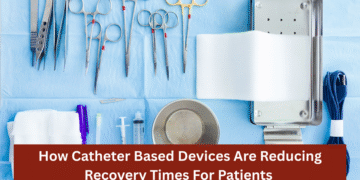Photo from Pexels
Your digestive system has a big impact on your overall health. It affects things like how much energy you have and how well your immune system works. When your gut isn’t functioning properly, it might give you signals that something’s not quite right. If you ignore these signs, you could develop more serious health problems later. So it’s important to recognize when your digestive system needs some extra attention.
Here are five common signs your gut might be alerting you that it needs help.
1. Bloating or Gas All the Time
Do you frequently feel bloated or gassy after eating? Your digestive system might have difficulty breaking down certain foods. While bloating happens to everyone occasionally, persistent discomfort could indicate your gut bacteria are out of balance or you’re sensitive to substances like lactose or gluten. You might also be swallowing air when you eat too quickly or consume carbonated beverages. Monitoring what you eat and your eating habits can help you identify what’s causing problems. If issues persist, you should consider consulting a doctor for evaluation.
2. Irregular Bowel Movements
Your bowel habits indicate how well your gut functions. If you experience constipation, diarrhea, or alternate between the two, your gut might be imbalanced. These problems can occur due to poor dietary choices, stress, insufficient water intake, or an overgrowth of harmful bacteria in your digestive tract. Adding beneficial bacteria and increasing fiber intake can help regulate movements, but don’t dismiss ongoing issues. If your bowel habits remain irregular for an extended period, it’s a clear indication your gut needs attention.
3. Always Feeling Tired
You might not realize that fatigue and digestion are connected, but they share a strong relationship. When your gut doesn’t absorb nutrients efficiently, your body lacks the fuel it needs to function. This can result in feeling tired, sluggish, or foggy—even after a full night’s sleep. Gut inflammation or unbalanced gut bacteria can also contribute to low energy levels. If you consistently feel exhausted, it’s worth considering how your digestive system might be involved.
4. Recurring Digestive Infections or Antibiotic Use
If antibiotics have been part of your recent health regimen or you frequently experience digestive infections, your gut microbiome might be unbalanced. Antibiotics eliminate beneficial bacteria along with harmful ones, which compromises your digestive system. In such situations, taking a probiotic supplement can help restore balance. Saccharomyces boulardii supplements stand out as an example. This probiotic yeast supports gut health and helps support regular bowel movements. Companies like Seeking Health® offer this supplement as a means for boosting digestive well-being. While supplements can prove beneficial, it’s best to use them alongside a nutritious diet.
5. Skin Issues and Food Sensitivities
Your skin and digestive system share a deeper connection than most people understand. Common skin conditions such as acne, eczema, or rosacea often correlate with digestive imbalances or food intolerances. When your digestive system becomes inflamed or functions improperly, it can trigger immune responses that manifest as skin issues. Similarly, if you notice certain foods causing bloating, headaches, or skin reactions, your digestive system may have difficulty processing these ingredients. Identifying and eliminating problematic foods, while simultaneously improving gut health, can lead to noticeable improvements in both skin condition and overall wellness.
Conclusion
Your gut health significantly influences your overall well-being. When your digestive system functions suboptimally, it can affect various aspects of health, from energy levels to skin appearance. Stay attentive to warning signs such as abdominal bloating, irregular bowel movements, chronic fatigue, frequent illnesses, and food sensitivities. When you notice these symptoms, take proactive steps to support your gut health.













